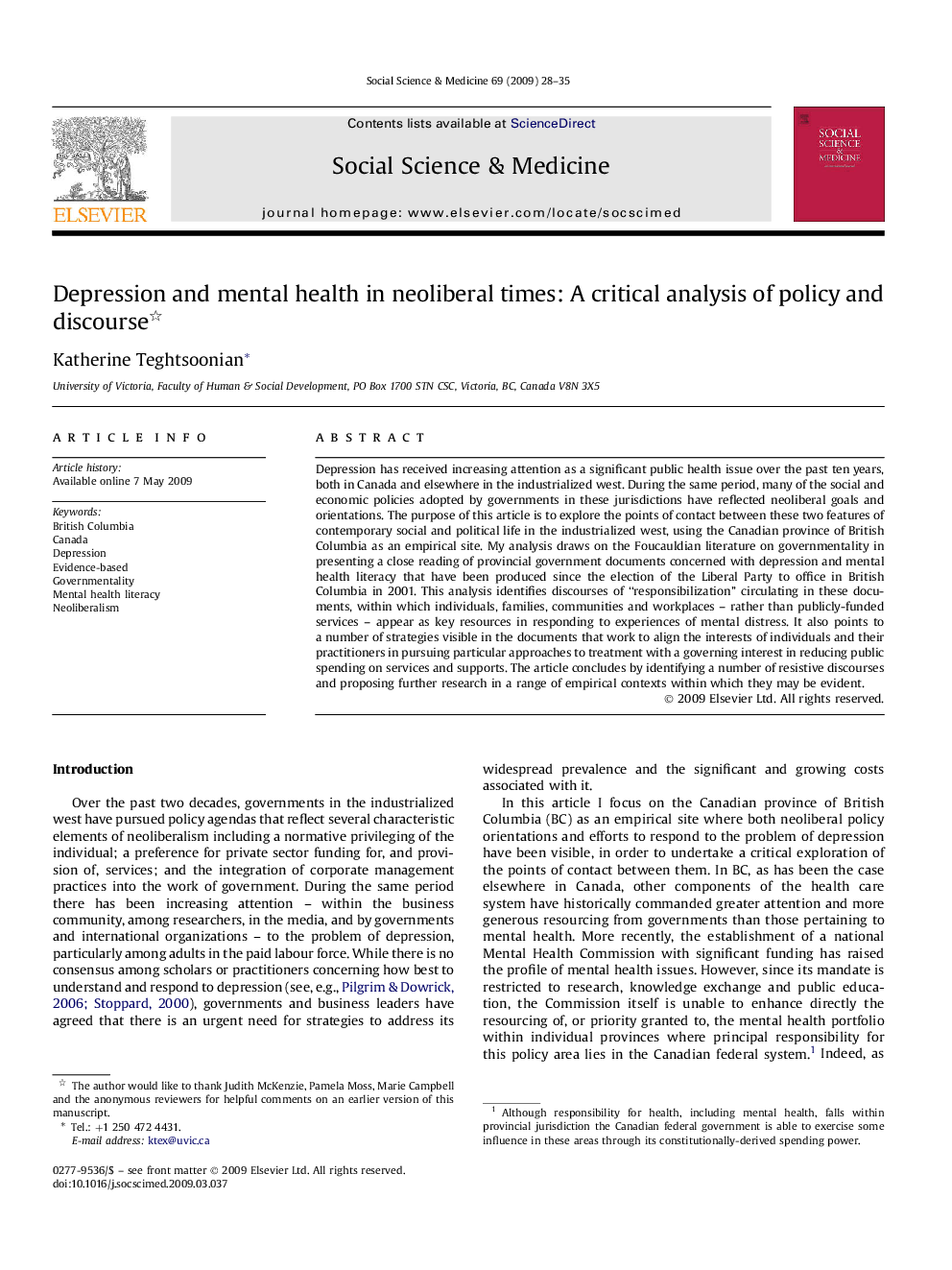| Article ID | Journal | Published Year | Pages | File Type |
|---|---|---|---|---|
| 953420 | Social Science & Medicine | 2009 | 8 Pages |
Depression has received increasing attention as a significant public health issue over the past ten years, both in Canada and elsewhere in the industrialized west. During the same period, many of the social and economic policies adopted by governments in these jurisdictions have reflected neoliberal goals and orientations. The purpose of this article is to explore the points of contact between these two features of contemporary social and political life in the industrialized west, using the Canadian province of British Columbia as an empirical site. My analysis draws on the Foucauldian literature on governmentality in presenting a close reading of provincial government documents concerned with depression and mental health literacy that have been produced since the election of the Liberal Party to office in British Columbia in 2001. This analysis identifies discourses of “responsibilization” circulating in these documents, within which individuals, families, communities and workplaces – rather than publicly-funded services – appear as key resources in responding to experiences of mental distress. It also points to a number of strategies visible in the documents that work to align the interests of individuals and their practitioners in pursuing particular approaches to treatment with a governing interest in reducing public spending on services and supports. The article concludes by identifying a number of resistive discourses and proposing further research in a range of empirical contexts within which they may be evident.
